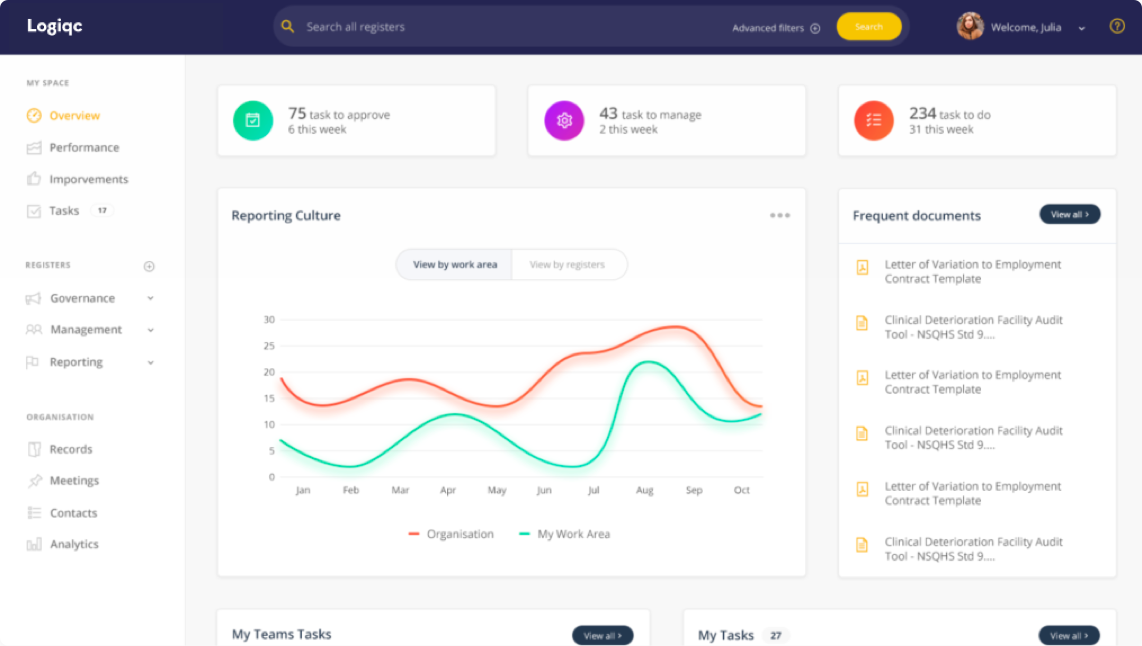The widespread adoption of digital tools has made remote work the norm, enabling tasks that previously required face-to-face interactions to be effortlessly accomplished through virtual channels.
In response to this evolving technological landscape, healthcare organisations are embracing remote auditing, recognising the multitude of advantages it offers. Instead of relying solely on on-site audits, they are using virtual assessments to save time and resources, and to overcome geographical barriers.
What Are The Benefits of Remote Auditing?
Remote auditing offers many advantages, including:
- Flexibility:
This approach enables audits to take place from virtually any location, simplifying scheduling, offering greater flexibility and saving valuable time.
- Transparency:
Remote auditing leverages technology and digital tools to enhance transparency throughout the auditing process. It allows organisations to effectively showcase their work and efforts in the audited area, while also providing auditors with greater visibility, increasing the rigour and thoroughness of the auditing process.
- Greater Expertise:
A remote auditing process allows organisations to broaden the pool of expertise and engage auditors from different parts of the world.
- Reduced Costs:
Remote auditing reduces expenses related to travel, accommodation, and on-site logistics, resulting in significant cost savings.
- More Data and Efficiency:
This approach unlocks access to a vast range of information and data. It also streamlines document management and data sharing, fostering seamless collaboration among auditors and stakeholders.
- Sustainability:
Importantly, it is an environmentally responsible alternative to traditional on-site audits. By reducing the need for travel, it contributes to a lower carbon footprint.
Challenges and Best Practices
Remote auditing offers a multitude of advantages, but it is important to acknowledge and address potential challenges. These include issues such as reliable internet connectivity, safeguarding information security and data protection, ensuring confidentiality, and the veracity and quality of the evidence collected.
Adhering to best practices is essential to minimise risks and maximise the benefits of remote auditing in the healthcare sector. Some of these best practices are:
- Accessibility:
Ensuring auditors can easily access and review the compliance documentation is crucial. To facilitate this, organisations can rely on effective tools like Logiqc’s Accreditation Register, which offers free online access to external auditors.
- Preparation and Action Plan:
Logiqc’s Accreditation Register assists organisations in preparing for a seamless remote auditing experience. It streamlines the definition of scope and objectives, facilitates effective communication, and includes task delegation and reminders, making it easier to manage compliance across multiple standards.
- Alignment With Auditing Guidelines:
When choosing a suitable digital platform, it is crucial to select one that adheres to the International Organisation for Standardisation (ISO) guidelines for online management system audits. Logiqc’s Accreditation Register fully aligns with ISO’s most recent online auditing developments.
- Compliance Status:
Conducting internal self-assessments ensures smoother auditing experiences. Our Accreditation Register simplifies the process for organisations, enabling them to conduct self-assessments effortlessly, analyse gaps against established standards and have a clear understanding of their compliance status.
- Communication:
It is important to foster open communication and collaboration with auditors to ensure clarity and transparency throughout the process.
- Auditors’ Training:
In order to assist our clients in maximising the benefits of remote auditing, Logiqc offers complimentary online training to auditors, equipping them with the necessary knowledge to obtain the evidence required by industry standards from the client’s platform.
As technology continues to adapt and evolve, remote auditing will likely play an increasingly pivotal role in the healthcare sector. Contact us today to explore how you can embrace remote auditing and adhere to best practices, ensuring seamless and successful auditing processes.





